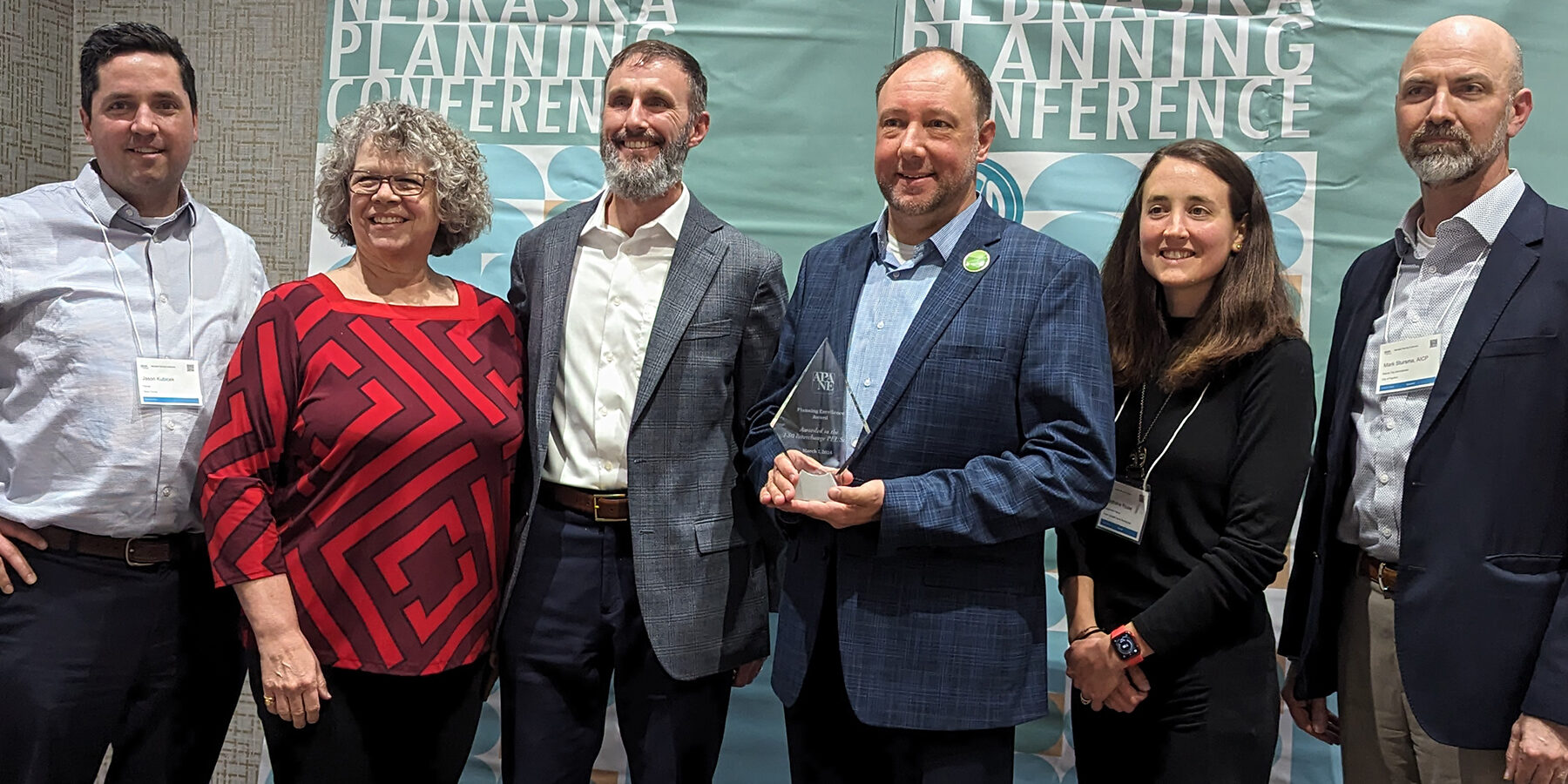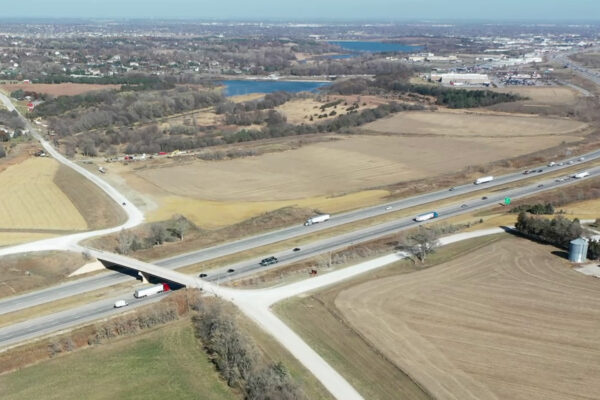Award-Winning I-80 PEL Study Creates Shared Vision for Land Use in Omaha, NE

SARPY COUNTY, NE—The Nebraska Chapter of the American Planning Association (APA-NE) has honored the I-80 Planning and Environmental Linkages (PEL) study with a Planning Excellence Award, recognizing the study’s contribution to creating stronger, more equitable communities. Led by Benesch, it is the first PEL study to be completed in the Omaha Metro area and only the second in Nebraska.
The study examined the need to relieve safety deficiencies at the existing interchanges along I-80 between Nebraska Highway 31 and Nebraska Highway 370, accommodate greater truck and vehicular mobility, and support existing and planned economic development in the area. Additional concerns, including the safeguarding of environmental resources, were also addressed by the team.
Benesch formulated a robust study process that involved regular consultations with the primary agencies, the Nebraska Department of Transportation and the Federal Highway Administration (FHWA). This strategy not only garnered the State’s approval but also influenced the guidance they released following the study’s conclusion.
Another key component to the award-winning study was incorporating the National Environmental Policy Act (NEPA) into the process.
“The NEPA process is highly technical and requires a lot from agencies to achieve approval from the FHWA,” explained Benesch Project Manager Craig Mielke, PWS. “We chose to incorporate several required components at this early stage of the project so that we could streamline approvals in the next phase.”
The study went on to receive the required acknowledgment from the FHWA last spring, which will allow certain outputs of the study materials, including the environmental resource analysis, previous studies summary and other crucial deliverables, to be moved forward into the next step of the project without having to duplicate the work.
Public engagement was critical to the study’s success, given its complexity, the involvement of multiple jurisdictions and the pandemic’s impact on in-person collaboration. The Benesch Team guided local partners through myriad evolving challenges, employing Value Planning techniques along the way to engage a wide range of stakeholder groups and agencies in the evaluation of six project alternatives—almost all of which was completed virtually.
“Initially, various stakeholders had competing land use visions for the study area,” said Craig. “The project team was able to bring these stakeholders together to create an open dialogue and provide channels for sharing concerns, resulting in a combined land use vision that everyone agreed with and is excited for.”
The study resulted in two alternatives moving forward to preliminary design and NEPA, which includes social and sustainable design elements for potential development opportunities within the study area. Completed using a forward thinking and collaborative approach, the results of this pioneering study will guide the area’s growth and development for years to come.

